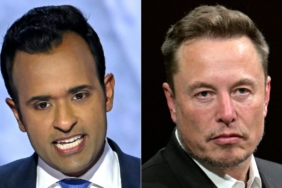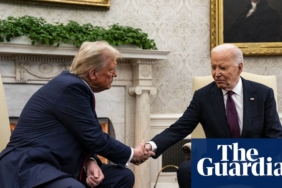Voting is under way in Uruguay’s presidential run-off election with the leftist alliance of celebrated former President Jose “Pepe” Mujica hoping to come back to power after five years of right-wing government at the helm of the Latin American nation.
Ballot stations opened at 8am (11:00 GMT) and close at 7:30pm (22:30 GMT), with first results expected two hours later.
People in the small nation of 3.4 million have to choose between the leftist Frente Amplio (Broad Front) candidate Yamandu Orsi and Alvaro Delgado of the National Party, a member of outgoing President Luis Lacalle Pou’s centre-right Republican Coalition.
Final opinion polls suggested the run-off to be razor-tight, with less than 25,000 votes potentially separating the frontrunners.
Unlike sharp right-left divides in recent elections in Argentina, Brazil or Mexico, Uruguay’s political arena is relatively tension-free, with significant overlap between the conservative and liberal coalitions vying for office, taking some of the sting out of Sunday’s final result.
President Luis Lacalle Pou has enjoyed a 50 percent approval rating, but the ruling conservative coalition has struggled to defend its record on crime, despite presiding over rising employment and wages.
Orsi, who has pledged a “modern left” policy approach, won 43.9 percent of the October vote for the Broad Front and will face Delgado, who secured 26.8 percent but also has the backing of the conservative Colorado Party that together with his National Party made up almost 42 percent of votes. The two parties did the same in 2019, winning the election.
No new pledges
Orsi has sought to reassure Uruguayans that he does not plan a sharp policy shift in the traditionally moderate and relatively wealthy nation.
Delgado, meanwhile, has asked voters to “re-elect a good government,” seeking to capitalise on the popularity of President Lacalle Pou, who constitutionally cannot run for immediate re-election.
Neither coalition has an absolute majority in the lower house following the first-round elections in October. But Orsi’s Broad Front won 16 of 30 Senate seats. He argues his Senate majority places him in a better position to lead the next government.
Both contenders are hoping to attract the roughly 8 percent of first-round voters who went for smaller, unaligned parties, as well as those who failed to turn out in October. But neither has made new pledges in the final weeks to appeal to them, and pollsters say a televised debate last week appears to have had little effect.
“I don’t know who I’m voting for,” said Rosario Gusque, 42, from the region of Canelones where Orsi was previously mayor. “Even less so after seeing the debate.”
One question as the biggest year for elections in history comes to an end is whether Uruguay will buck a global trend of incumbent parties losing vote share compared with the previous election. Voters hurt by inflation and high living costs have punished parties in power, including in the UK, Japan and the United States.







Yorumlar kapalı.